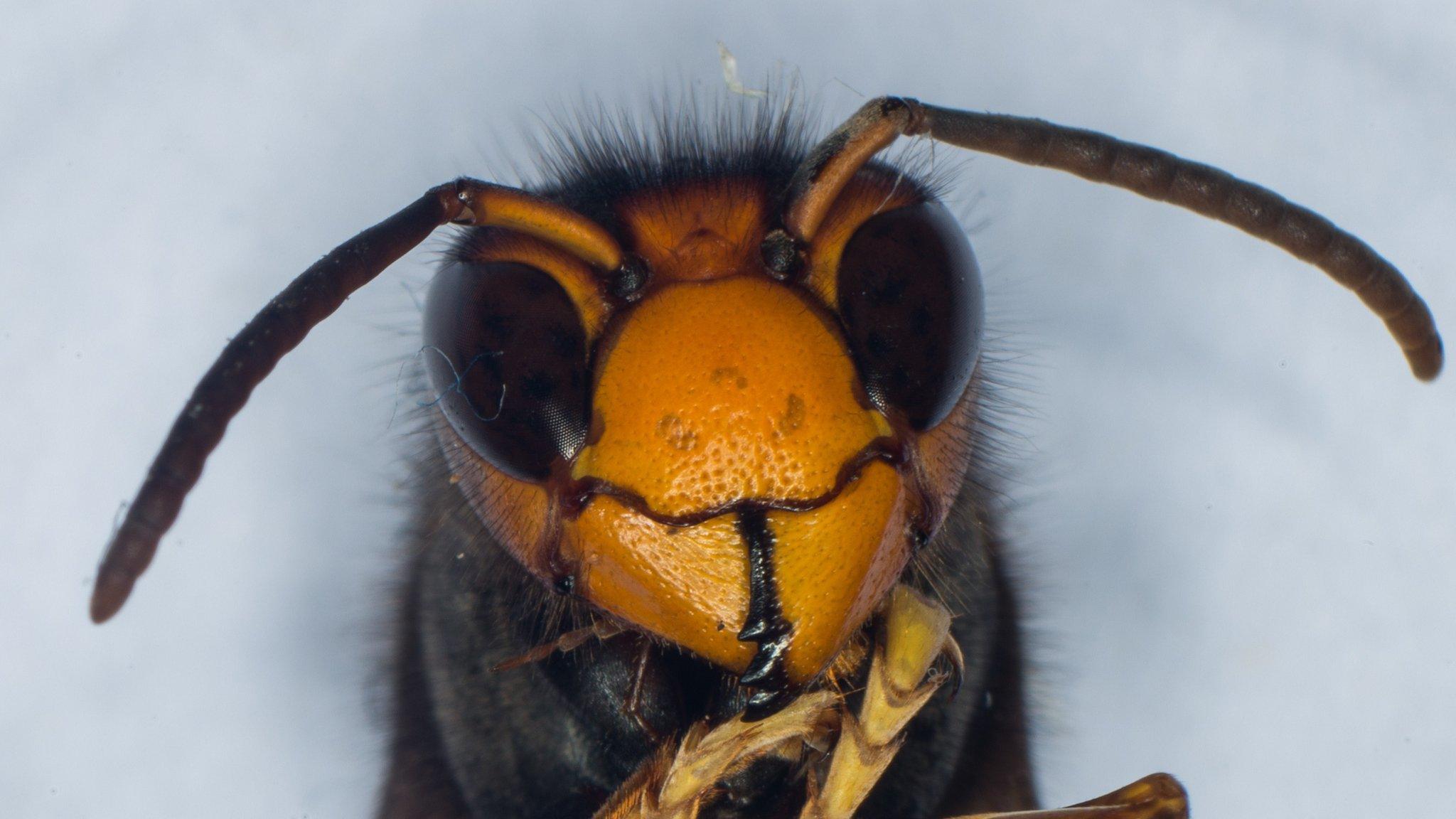Invasive Asian hornet outbreak is contained, Defra says
- Published
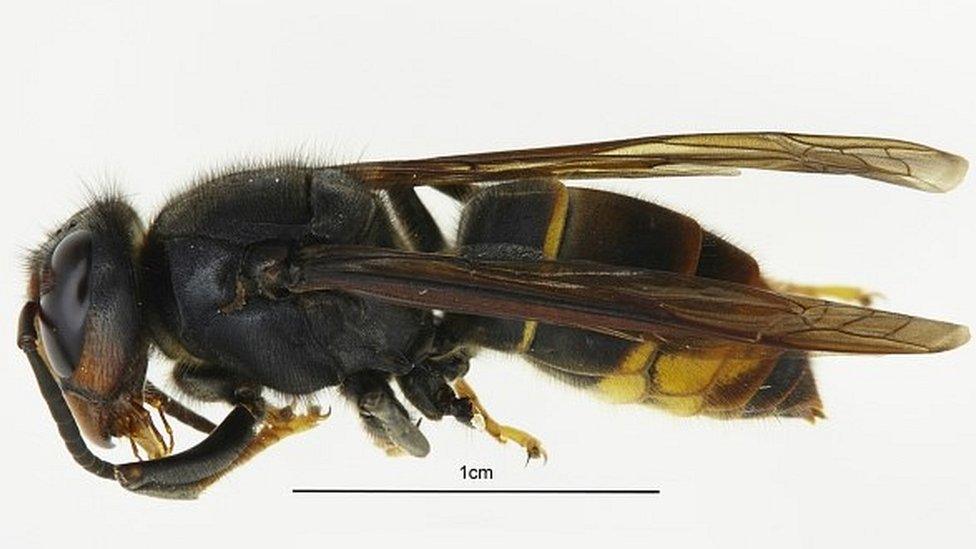
Asian hornets prey on pollinating insects such as honey bees and could do serious damage to colonies in the UK, which have not evolved to cope with the threat
An Asian hornet outbreak in Somerset and Gloucestershire has been contained by the National Bee Unit, Defra said.
A Tetbury hornets' nest was destroyed and, although two dead hornets were found in North Somerset, no further sightings have been made.
Nicola Spence, from Defra, said: "We will continue to monitor the situation and encourage people to look out for any Asian hornet nests."
Asian hornets are a predator of bee colonies and other insects.
A single Asian hornet was found near Tetbury, Gloucestershire in September - the first time the species had been seen in Britain.
A nest was then found nearby at the top of a 55ft (16.8m) conifer tree.
As part of the protocol, the Department for Environment, Food and Rural Affairs (Defra) set up a three-mile (5km) surveillance zone.
It said it had been anticipating the arrival of hornets for "for some years" and had a "well-established protocol in place to eradicate them".
The Asian hornet is now common across Europe after being introduced in error to France in 2004 in a shipment of pottery from China.
In the summer, the non-native species was discovered in the Channel Islands of Jersey and Alderney for the first time.

Identifying an Asian hornet
Vespa velutina queens are up to 3cm (1.2in) in length; workers up to 2.5cm (1in)
Entirely dark brown or black velvety body, bordered with a fine yellow band
Only one band on the abdomen: fourth abdominal segment almost entirely yellow/orange
Legs brown with yellow ends
Head black with an orange-yellow face
Source: National Bee Unit

- Published1 October 2016

- Published20 September 2016

- Published17 August 2016
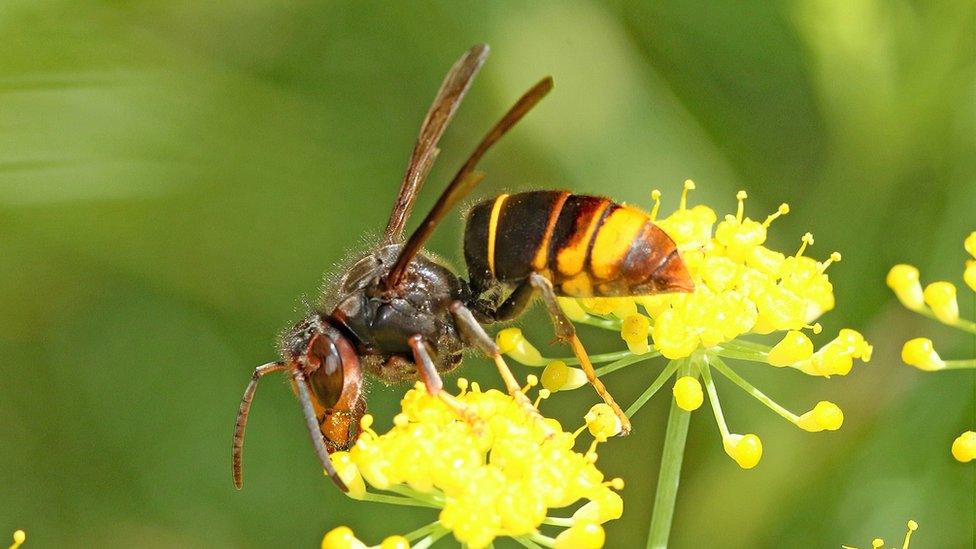
- Published22 July 2016
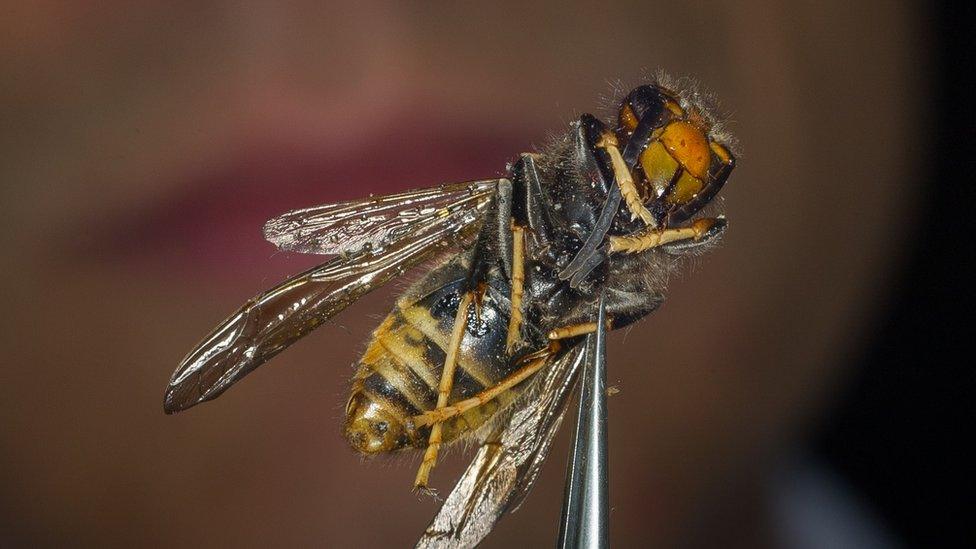
- Published21 May 2016
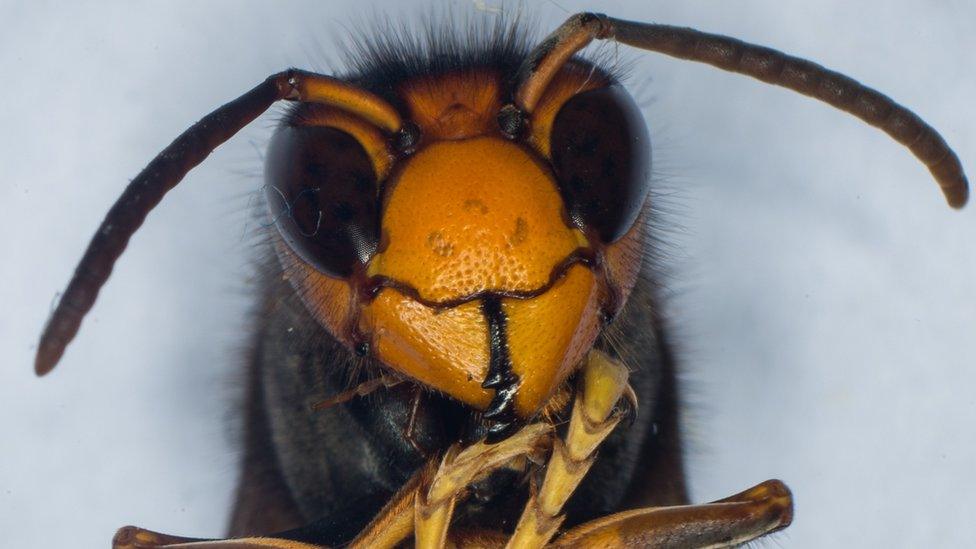
- Published10 October 2014
